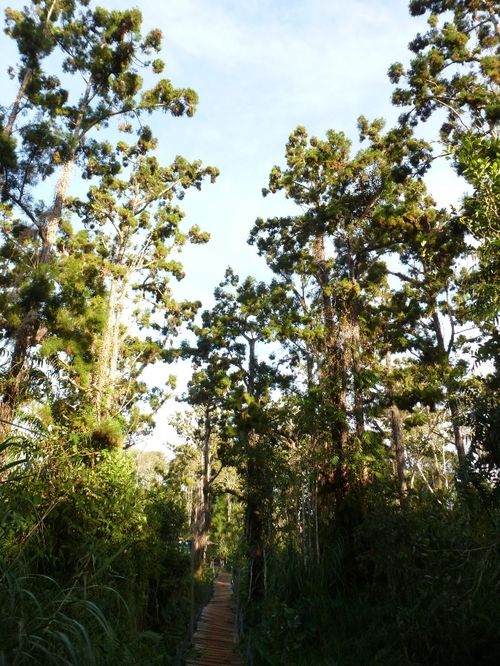A representative from PanNature suggested clearly defining the non-profit status of science and technology organizations to facilitate research, technology transfer, and application. This clarity would also enhance international collaboration and attract funding.

Dak Lak Yew forest revives
More than 10 years ago, scientists warned about the endangered yew (Glyptostrobus pensilis) forests in the central province of Dak Lak. Since then, activities have helped to preserve the species.

In 2001, Nguyen Duc To Luu from PanNature had the opportunity to visit two swamp yew forests, Earal and Trap K’So in Dak Lak province, within the framework of a program on protecting rare and precious coniferous species.
In early 2000, yews were little known to people, except scientists. The Earal Forest was then put under protection by a small forest rangers’ unit.
Earal covered an area of 50 hectares, where there were only 200 plants growing poorly because the land areas nearby were cleared to make room for coffee growing areas, while a new irrigation dam was built, which led to changes in the water level of the lagoon.
At that time, no one paid attention to the 200 yew plants in the lagoon. However, residents said that yew trees could treat cancer. Illegal loggers day and night tried to chop down the yew trees to sell.
However, Luu, who has been studying pine trees for dozens of years, had never read any document that said the substances could treat cancer.
In 2012, IUCN put yews among the ‘Critically Endangered’ species that need strict protection, but it did not say the trees can treat cancer. However, the false rumor was enough to threaten the life of yew.
However, luckily, scientists found that the yew which existed for thousands of years, is not ‘infertile’ as initially thought, even though the yew seeds collected from the trees left in Dak Lak could not sprout.
They proved the asexual reproduction ability of yew trees and found that it was not too difficult to conduct artificial pollination.
The scientists’ finding has important significance. In 2015, Luu returned to the Central Highlands in dry season and saw a luxuriant green swamp forest which had replaced the thinly populated forest in the past. The local ecosystem of swamp forest had been restored.
Tropical pitcher plants (Nepenthes sp.) with big pitchers to trap insects are growing everywhere. There are also evergreen subtropical plants Aeschynanthus sp. with brilliantly red flowers. Nepenthes sp. and Aeschynanthus sp. are indicators that show a healthy primitive forest ecosystem.
The yew swamp forest, under strict protection by the Yew Natural Sanctuary’s management board, has found its former pristine state.



